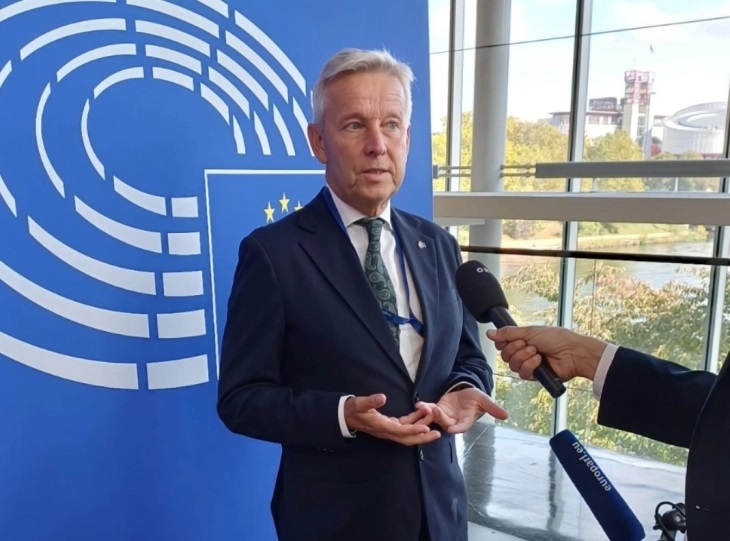Strasbourg – After a long period when we were unable to include new countries in our European family, it is time to seize the opportunity and expand the European Union during this mandate of the European Parliament, stated Austrian MEP Reinhold Lopatka in a statement to the European News Agency (ENA).
– I think what is happening in Montenegro, in Albania is positive, and I am also optimistic about North Macedonia, said Lopatka, who comes from the ranks of the European People’s Party (EPP).
According to him, when it comes to enlargement, progress should be welcomed, but at the same time, we should not turn a blind eye to the huge problems.
– As I already said, we must see progress in Montenegro and Albania, and I also see good chances for North Macedonia. Bosnia and Herzegovina is facing a very difficult situation, especially with the Republic of Srpska. Serbia has many problems, and Kosovo is also facing issues. Therefore, the Belgrade-Pristina dialogue is no longer at the center of our interest, as the problems in both countries are now at the forefront, believes Lopatka.
He emphasizes that the inclusion of all countries from the Western Balkans in the EU has always been a focus of the Union, and especially of his homeland Austria.
– But we must be honest. This process must be merit-based. If they are unable to complete their homework, we cannot say welcome to them, says Lopatka.
The MEP emphasizes that he would tell the citizens of the countries in the Western Balkans region that they need to see the added value of EU membership.
– They need to see the opportunities in this huge market. They should also see the opportunities for young people. For example, that they have a chance to work here in European institutions. Many Croats, Romanians, people from Bulgaria, even in my office, are from these countries. And of course, if you look back through the centuries, they are part of Europe and should seize their chances. I think this is a huge opportunity for young people. Politicians should not miss this chance. They need to give their young people a chance, concludes Lopatka. (October 24, 2025)
 go to the original language article
go to the original language article
